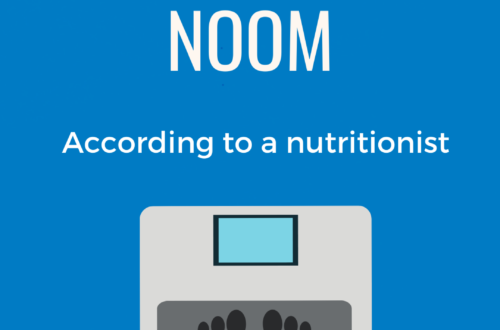
5 Reasons Intermittent Fasting is So Popular
Why people choose to go hungry on a regular basis.
Intermittent Fasting is an “eating plan” that is credited with everything from weight loss to making you live longer. The big question is, “Is changing when you eat worth it?”
Intermittent Fasting is Worth it for Some People
Fifty million people have done it. A lot of them have lost a lot of weight, improved their overall health, and feel energized. One can’t argue with success, right?
Proponents of IF say that it works by putting your body is in a truly fasted state, say 12 hours after your last meal. The argument is that, when you don’t eat for 12 or more hours, blood insulin levels are low and fat is burned as fuel instead of stored. More often, your body burns fat (instead of the sandwich you ate a few hours ago).
Intermittent Fasting is Different Than Most Diets
There are countless diet plans and “wellness” diets out there, so why is Intermittent Fasting the most popular – and effective – diet today?
If you’ve ever been on a diet (um, probably most of us have, right?), think about the reasons you stopped doing it. Maybe you didn’t like the food or you had to buy expensive supplements. Perhaps the rules were just too complicated, and the diet was ruling or ruining your life. IF, on the other hand, has very few rules and doesn’t cost you a dime.
5 Reasons Intermittent Fasting is So Popular
For an overview of what intermittent fasting is and the different ways to do it, check out my post Intermittent Fasting: 101.
Here are 5 reasons why IF has become a diet of choice for millions:
1. It’s Simple and Cheap
Simple: Eat at certain days/times, do not eat (or eat a lot less) at all other days/times. That’s it. Eat. Don’t Eat. Eat. (Repeat)
Cheap: As long as you have a calendar and a watch (or other time-keeping device), you have everything you need to start Intermittent Fasting.
2. It’s Easier Than Following a Diet or Meal Plan
With IF, there are no rules about what you can and cannot eat. You eat by the clock – that’s the only rule.
Hate kale? No worries – there are no green smoothies in IF. In fact, there are no vegetable requirements at all!
Got a hankerin’ for Rocky Road? As long as it’s an eating day/time, g’head – have ice cream for every meal.
The point is, anyone with any dietary preference or restriction can easily start in intermittent fasting plan without changing what they eat. With IF, you don’t have to measure, document, or count calories/macros/carbs. This is a HUGE benefit for anyone who is weary of diets that require the time commitment of a part-time job to follow.
Note that most proponents of IF encourage “healthy and balanced” eating during feeding times, but there are no requirements or standards.
3. Effective Weight Loss
A 2020 poll found that more people (87%) who used IF found it “very effective” or “somewhat effective” for weight loss. That’s compared to any other popular diet plan (think Keto, Atkins, Vegetarianism, even Weight Watchers).
Research studies show a similarly positive trend. When compared to traditional, reduced-calorie diets, Intermittent fasters lost at least as much (and sometimes more) weight in a given time period.
4. May Help You Live Longer
Metabolic switching refers to the “switch” that our body makes between burning the easily-accessible last meal vs stored fat for energy. When we fast for an extended period of time, our body uses up the easy-to-use glucose in our blood and liver, then goes after the fatty acids in our fat cells.
This process is an adaptation that we humans have, so that we don’t starve to death if we can’t get to food for a day (or 10). We can go a long time without food! Thanks to this adaptive superpower, our brains and bodies can perform (building huts, hunting deer, programming software, etc.) without food for many days.
Proponents of IF believe that this “switching” process improves longevity. The theory has two main points:
- When our body is in a semi-starvation state (fasting), damaged cells are destroyed (autophagy), leaving only healthy cells.
- Researchers also think that IF impacts multiple metabolic pathways to improve brain health and resilience for a lifetime. Check out the Resources section if you want to read up on the metabolic details.
5. May Reduce Risk of Chronic Disease
This is related, but a little different than making your cells healthier. Some research studies indicate that people who fast reduce their risk of certain chronic, metabolic diseases – especially heart disease and diabetes.
The reasons for this are not completely understood; however, scientists do have some clues:
- Fasting decreases overall insulin activity. When you eat less often, your blood sugar goes up less often, and you don’t need to use insulin as often. This increases insulin sensitivity, which is protective against diabetes and heart disease. A good analogy is alcohol tolerance: If you have several drinks regularly, then you may need more drinks to get a buzz. If you drink seldomly, just one drink will have an effect.
- Some studies have found that IF is associated with lower blood pressure and heart rates. Lower blood pressures and heart rates can help prevent cardiovascular disease.
Is fasting a good way to lose weight?
Why would someone want to fast on the regular? Yes, people use IF to lose weight – that’s the primary reason. A 2020 poll found that 87% of people that used IF found it “very effective” or “somewhat effective” for weight loss. It’s simple and cheap, too.
IF is definitely a way to lose weight.
Caveats
Compared to traditional reduced-calorie diets, research trials show that IF doesn’t perform any better for weight loss or chronic disease reduction.
Weight loss, “metabolic switching”, increased insulin sensitivity, lowered blood pressure and heart rate are all natural ways our bodies cope with semi-starvation.
Summary
Intermittent fasting is a simple and inexpensive diet that is just as effective as other weight loss plans. Some people believe that IF has additional perks like reducing risk of chronic disease and helping you live longer.
IF is often referred to as an eating plan or program, but – let’s be honest – it’s a diet. The overall result of fasting is that food and calorie intake goes down.
What happens in IF is what happens in any diet – when food is scarce, the body’s metabolism slows down to conserve every calorie of energy it can.
There are no long-term studies on how IF impacts the body, or whether people can/do stick with the fasting program over time. In fact, most human studies on IF have very high dropout rates. For me, that means that we don’t really know if IF can be sustained or has any long-term benefit.
As long as weight loss is a goal for millions of people, IF will be a top choice of diets, due to its simplicity, low cost, and short-term effectiveness.
What do you think about IF? Have you tried it?
I’d love to hear what you think!
Resources
Gleeson, Jane Racey. “Intermittent Fasting: Is It Right for You?” Health & Wellness Topics, Health Tips & Disease Prevention, 29 July 2019, healthblog.uofmhealth.org/wellness-prevention/intermittent-fasting-it-right-for-you.
“Intermittent Fasting: Live ‘Fast,’ Live Longer?” ScienceDaily, ScienceDaily, 26 Dec. 2019, www.sciencedaily.com/releases/2019/12/191226084351.htm.
James Clear. “The Beginner’s Guide to Intermittent Fasting.” James Clear, 7 Aug. 2018, jamesclear.com/the-beginners-guide-to-intermittent-fasting.
Mattson, Mark P., et al. “Intermittent Metabolic Switching, Neuroplasticity and Brain Health.” Nature Reviews Neuroscience, vol. 19, no. 2, 2018, pp. 81–94., doi:10.1038/nrn.2017.156.
“Preferred Diets. Fieldwork Dates: 3rd – 6th January 2020, US_nat_int Sample: 3rd – 6th January 2020.” YouGov plc 2020.
Trepanowski, John F., et al. “Effect of Alternate-Day Fasting on Weight Loss, Weight Maintenance, and Cardioprotection Among Metabolically Healthy Obese Adults.” JAMA Internal Medicine, vol. 177, no. 7, 2017, p. 930., doi:10.1001/jamainternmed.2017.0936.
Varady, Krista A, and Marc K Hellerstein. “Alternate-Day Fasting and Chronic Disease Prevention: a Review of Human and Animal Trials.” The American Journal of Clinical Nutrition, vol. 86, no. 1, 2007, pp. 7–13., doi:10.1093/ajcn/86.1.7.
Wolfram, Taylor. “Investigating Intermittent Fasting: Food & Nutrition: From the Magazine.” Food & Nutrition Magazine, 4 Oct. 2018, foodandnutrition.org/from-the-magazine/investigating-intermittent-fasting/.






One Comment
Pingback: